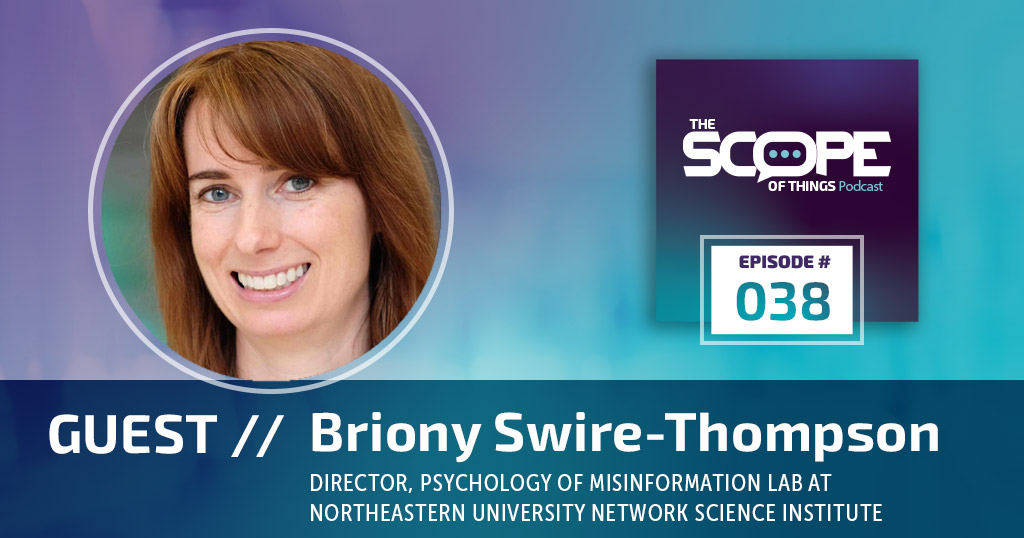Tackling the Misinformation Epidemic with Briony Swire-Thompson
May 6, 2025

*Since the recording of this podcast, all NIH and NSF grants studying misinformation have been cut, including Dr. Swire-Thompson’s grant from the National Cancer Institute to study cancer misinformation.*
In this episode of the Scope of Things, host Deborah Borfitz brings you the news on a precision medicine initiative in Sweden integrating research with healthcare, newly available cardiometabolic clinical data registries for real world evidence projects, updates to guidelines on the reporting of clinical trials, AI improving the monitoring of movement disorders, and the best-yet biomarker for stroke and dementia risk. Joining the conversation is Briony Swire-Thompson, director of the Psychology of Misinformation Lab at Northeastern University Network Science Institute, to discuss the current misinformation epidemic and how clinical trials and sites can best deal with it.
Show Notes
News Roundup
Precision Omics Initiative Sweden (PROMISE)
- Correspondence in Nature Medicine
- Article in Clinical Research News
Cardiometabolic clinical data registries
- Article in Clinical Research News
New CONSORT reporting guidelines
- Article in JAMA
VisionMD for analyzing motor function
- Article in Nature
Best-yet biomarker for stroke and dementia risk
- Article in Diagnostics World News
Scope of Things boiler: The Scope of Things podcast explores clinical research and its possibilities, promise, and pitfalls. Clinical Research News senior writer, Deborah Borfitz, welcomes guests who are visionaries closest to the topics, but who can still see past their piece of the puzzle. Focusing on game-changing trends and out-of-the-box operational approaches in the clinical research field, the Scope of Things podcast is your no-nonsense, insider’s look at clinical research today.
GUEST BIO
Briony Swire-Thompson, Director, Psychology of Misinformation Lab at Northeastern University Network Science Institute
Briony Swire-Thompson is a cognitive psychologist and Director of the Psychology of Misinformation Lab. She is a professor of psychology and political science at Northeastern University’s Network Science Institute. Her research examines what drives belief in inaccurate information, why people share misinformation online, and how corrections can be designed to maximize impact. Prior to joining the Network Science Institute, she was a doctoral student at the University of Western Australia’s Cognitive Science Laboratories and a Fulbright scholar at Massachusetts Institute of Technology. She is currently funded by a Pathway to Independence Award from the National Institutes of Health to study cancer misinformation.







